what does white smoke from exhaust mean
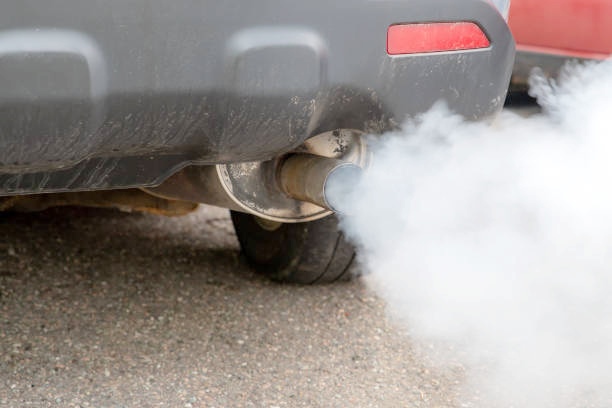
Seeing white smoke coming from your car’s exhaust can be alarming, especially if you’re unsure what it means. While some cases may be completely harmless—like condensation on a cold morning—persistent or heavy white smoke often signals an underlying issue that shouldn’t be ignored. In this guide, we’ll break down the common causes of white exhaust smoke, from simple explanations to more serious engine problems. Whether you’re dealing with a coolant leak, a blown head gasket, or a faulty fuel injector, understanding what the smoke is telling you is the first step toward protecting your vehicle and avoiding costly repairs.
Understanding the Causes of White Smoke from Exhaust
White smoke from the exhaust can be caused by several different factors. Some are harmless, while others may require immediate attention. Let’s explore the most common causes of this phenomenon.
1. Coolant Leaking into the Engine
One of the common reasons for white smoke is coolant leaking into the engine’s combustion chamber. This can occur or happen due to a blown head gasket, a cracked engine block, or a damaged cylinder head. When coolant enters the combustion chamber, it burns off and turns into white smoke that exits through the exhaust pipe.
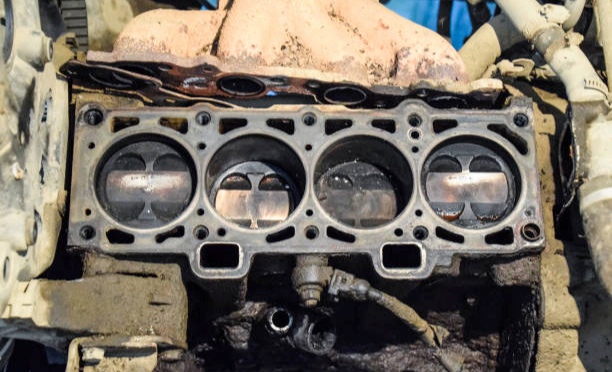
2. Condensation in the Exhaust System
Especially in cold weather or after starting your car for the first time in the morning, you might notice white smoke that dissipates quickly. This is typically just condensation evaporating from the exhaust system, and it’s completely normal. However, if the white smoke persists after the engine warms up, it may indicate a more serious issue.
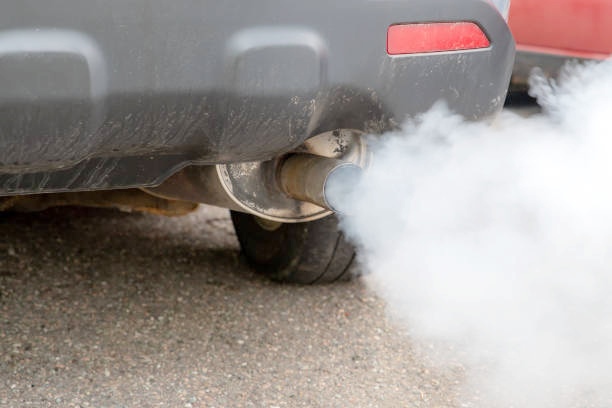
3. Faulty Turbocharger
lf your vehicle has a turbocharged engine, a damaged or worn-out turbocharger could be another culprit. A turbocharger uses oil for lubrication, and if the seals fail, oil may leak into the engine and cause white smoke from the exhaust. ln this case, you may also notice a decrease in engine performance.

4. Fuel System Problems (Rare Cause)
In rare cases, white smoke can be caused by issues with the fuel system. If the fuel injectors are malfunctioning and delivering too much fuel to the engine, the engine may run “rich” (with too much fuel) and produce white smoke. This is less common but still a possible cause.
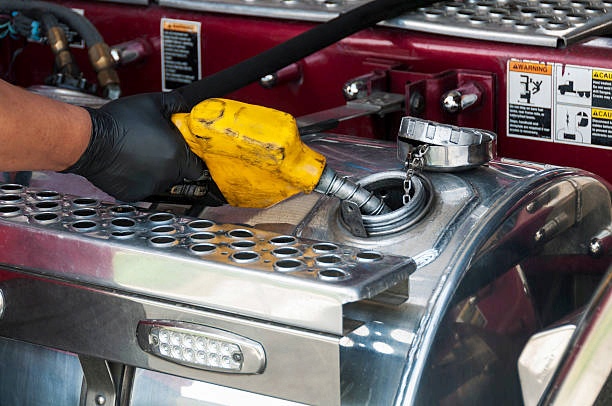
5. Overheating Engine (Leaking Coolant)
An overheating engine can also cause white smoke. When the engine gets too hot, it can cause coolant to leak into areas it shouldn’t be, like the combustion chamber. This can result in white smoke coming from the exhaust. Overheating can damage important engine components, such as the head gasket or cylinder head, leading to costly repairs if not addressed quickly.
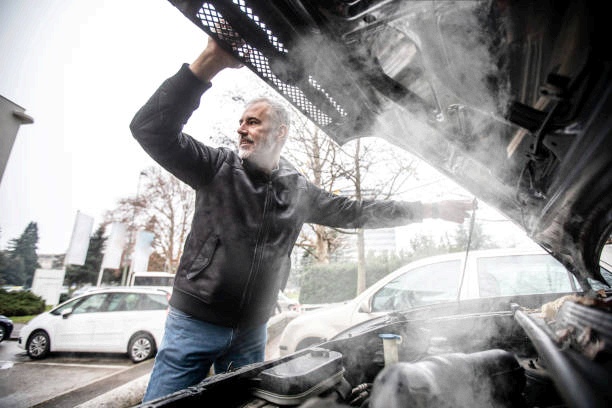
How to Diagnose White Smoke from Exhaust
If you’re unsure whether the white smoke is harmless or a sign of a serious issue, you can conduct a few simple checks to help diagnose the problem.
1. Check the Engine Temperature
If the engine is running hotter than usual or you’re seeing your temperature gauge rise significantly, it’s a good indication that coolant may be leaking into the engine.
2. Look for Coolant Loss
Monitor your coolant levels. If you’re losing coolant without any visible leaks, it’s likely that coolant is leaking into the combustion chamber, causing white smoke.
3. Inspect the Oil
Check the oil for a milky or frothy texture. This could indicate that coolant is mixing with the oil, a telltale sign of a blown head gasket.
4. Examine the Exhaust
Observe the white smoke carefully. Is it thick and persistent, or does it clear up as the engine warms up? If it clears up, it could just be condensation. However, if it doesn’t go away, further investigation is needed.
What Should You Do if You Notice White Smoke?
If you’re dealing with persistent white smoke from the exhaust, you’ll want to take immediate action to prevent further engine damage.
1. Visit a Mechanic
If you suspect a blown head gasket or damaged engine components, it’s crucial to visit a mechanic as soon as possible. They will be able to conduct a full diagnostic test to determine the exact cause of the white smoke.
2. Replace the Turbocharger
If the issue is a faulty turbocharger, it will need to be replaced or repaired. This repair can be expensive, but it’s essential to avoid further damage to your engine.
3. Top Up Coolant and Check for Leaks
If the issue is related to coolant levels, you can top up your coolant temporarily. However, you’ll need to inspect the vehicle for leaks or damage that’s causing the coolant to burn off.
How to Prevent White Smoke from Exhaust
Regular maintenance is key to preventing issues that can lead to white smoke from your exhaust. Here are some simple tips to keep your car running smoothly:
- Regularly Check Coolant and Oil Levels: Ensure that your coolant and oil levels are within the recommended range to prevent leaks and damage.
- Perform Engine Inspections: Have your vehicle inspected by a professional mechanic to catch any potential issues before they become serious.
- Follow Manufacturer Maintenance Schedules: Adhere to the recommended service intervals for things like changing the head gasket, oil, and turbocharger maintenance.
Conclusion
White smoke from your exhaust is more than just an eyesore—it’s a potential warning sign from your engine. While it could be something as harmless as condensation, it may also indicate serious issues like a coolant leak, damaged head gasket, or fuel system problem. Paying close attention to the timing, consistency, and smell of the smoke can help you diagnose the issue early. If you notice persistent white smoke, don’t ignore it—prompt action can prevent further engine damage and save you from expensive repairs down the road. When in doubt, consult a professional mechanic to get to the root of the problem and keep your vehicle running smoothly.
Common Questions or FAQs
1. What Does It Mean When White Smoke Comes Out of My Exhaust Continuously While Driving?
If you notice thick white smoke constantly coming from your exhaust pipe while driving, it’s often a red flag that your engine is burning coolant. This usually means there’s a leak somewhere inside the engine—most commonly a blown head gasket, a cracked engine block, or a damaged cylinder head. When coolant enters the combustion chamber and burns, it produces dense white smoke that exits through the tailpipe. It’s not just a cosmetic issue—if left unchecked, it can lead to overheating, engine failure, or costly repairs. You should have your vehicle checked by a mechanic immediately to prevent further damage.
2. Can White Smoke from My Exhaust Be Normal in Cold Weather, or Is It Always a Problem?
Seeing white smoke in cold weather isn’t always a reason to panic. In fact, during early morning startups or on chilly days, light white smoke—or more accurately, water vapor—is perfectly normal. It happens because moisture in the exhaust system evaporates as the engine warms up. However, if the white smoke is thick, has a sweet smell, and continues even after the engine has been running for several minutes, then it’s likely more than just condensation. In that case, it could point to coolant leakage into the combustion chamber, which means you need to get your car inspected right away.
3. How Do I Know If White Exhaust Smoke Means a Blown Head Gasket?
A blown head gasket is one of the most common reasons for thick white smoke coming from your exhaust. But how can you tell for sure? Aside from the smoke, look out for other symptoms like engine overheating, a milky white color in your engine oil (often visible on the dipstick), or a sweet smell coming from the tailpipe. Your coolant level might also drop without an obvious leak. These are classic signs of a head gasket failure, which allows coolant to leak into the engine cylinders and burn off as white steam. A mechanic can run a compression test or cooling system pressure test to confirm the issue.
4. What’s the Difference Between White Smoke, Blue Smoke, and Black Smoke from an Exhaust?
Each type of exhaust smoke tells a different story about your engine’s health.
- White smoke often means coolant is leaking into the engine and burning, usually due to a blown head gasket or cracked engine part.
- Blue smoke indicates your engine is burning oil, which could mean worn piston rings, valve seals, or a PCV valve problem.
- Black smoke suggests the engine is burning too much fuel—this can be caused by issues with the fuel injectors, air filters, or sensors.
Knowing the difference can help you quickly pinpoint the problem and avoid bigger issues down the line.
5. Is It Safe to Drive a Car That’s Releasing Thick White Smoke from the Exhaust?
Driving a car that’s emitting thick white smoke from the exhaust is not safe, especially if the smoke is caused by coolant leaking into the engine. This situation can quickly lead to overheating, engine misfires, and even permanent engine damage. If the coolant level continues to drop, your engine may not cool properly, leading to serious consequences. Even if the car still drives normally for now, you’re risking a much more expensive repair—or complete engine failure—by continuing to operate the vehicle without addressing the issue. It’s best to stop driving and have a qualified mechanic inspect the car as soon as possible.

